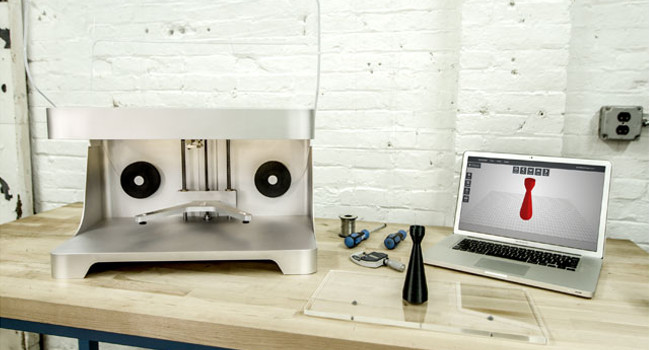With stablecoins gaining traction and regulation improving, African merchants may be nearing a crypto tipping point. Here’s why 2026 could mark a shift from hesitation to adoption.
Mark One carbon fiber 3D printer can help you create strong, light objects


Ever wanted to build your own super strong, light-weight toy airplanes from scratch? Created by MarkForged, the Mark One is the world’s first commercial 3D printer that can create parts using carbon fiber. The main goal of this contraption is to overcome the strength limitations of other 3D printed PARTS by using the right material.
The strength to weight ratio of carbon fiber would allow you to 3D print lighter, stronger toy airplanes, toy cars and other durable tools. The 3D printer can print using different materials such as carbon fiber, fiberglass, nylon and PLA. The latter is thermoplastic filament used by many household 3D printers.
“We took the idea of 3D printing, that process of laying things down strand by strand, and we used it as a manufacturing process to make composite parts,” company founder Gregory Mark tells Popular Mechanics. “We say it’s like regular 3D printers do the form. We do form and function.”
The Mark One is about the size of a shoebox and is capable of creating objects with a higher strength-to-weight ratio than 6061-T6 Aluminum which is commonly used in making bicycle frames. MarkForge says the 3D printer can print parts 20 times stiffer and five times stronger than ABS which a common material used by commercial 3D printers.
http://www.youtube.com/watch?v=lnxyXiA8MbY
Mark graduated as an aerospace from MIT and is currently the co-owner of Aeromotions . The company is responsible for engineering the super-fast, aerodynamic carbon fiber wings and spoilers — parts the Mark One hopes to create.
Mark got the idea of this 3D printer as his startup company struggled to get their hands on (and producing) strong reliable materials. He argues that companies such as Boeing and NASA have are capable of creating the most amazing parts in the world because of their capacity. “If you’re a company of ten people or 50 people, composites are out of your reach. Because you can’t do all these checks and all the steps you need,” says Mark.
Image via Popular Mechanics

